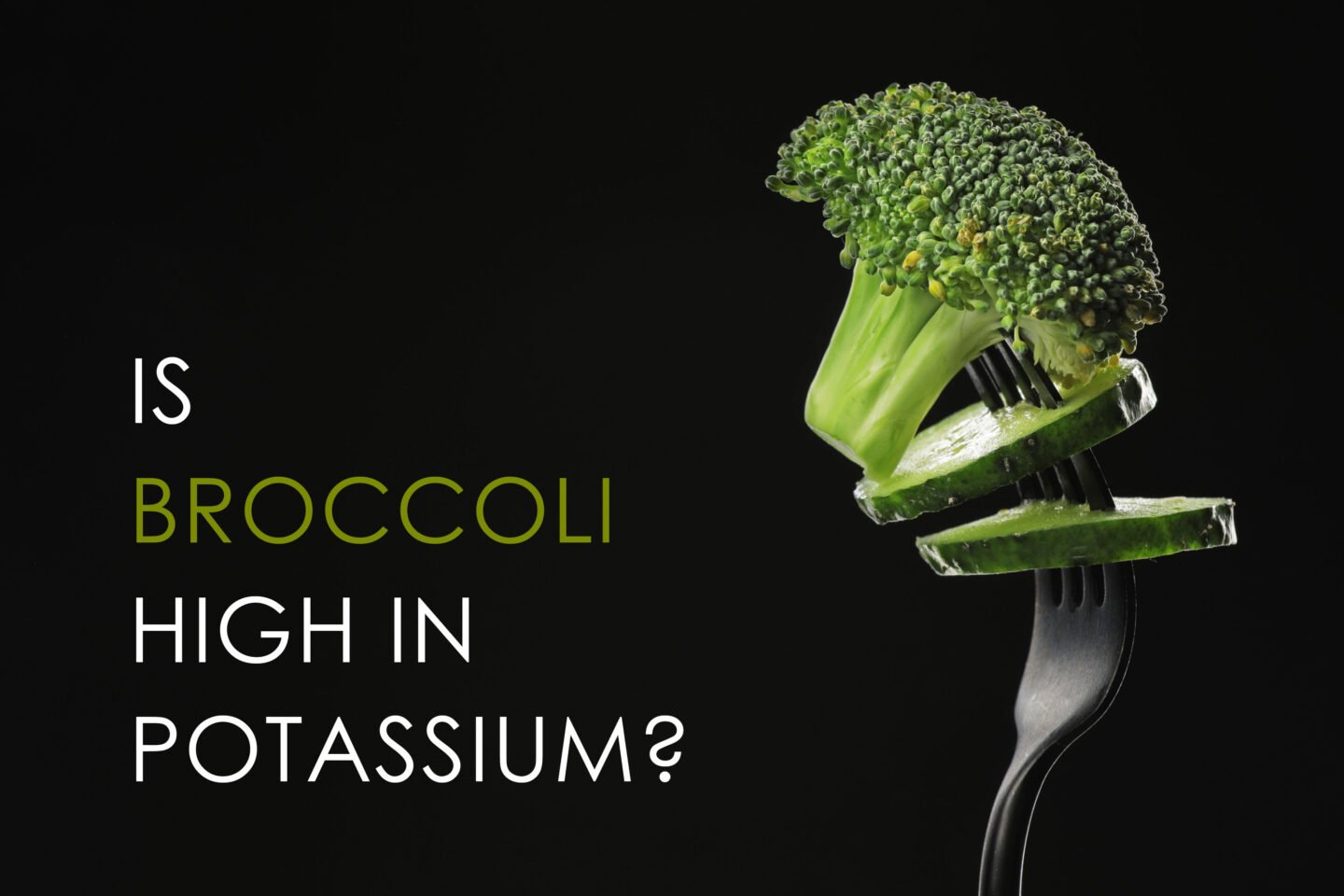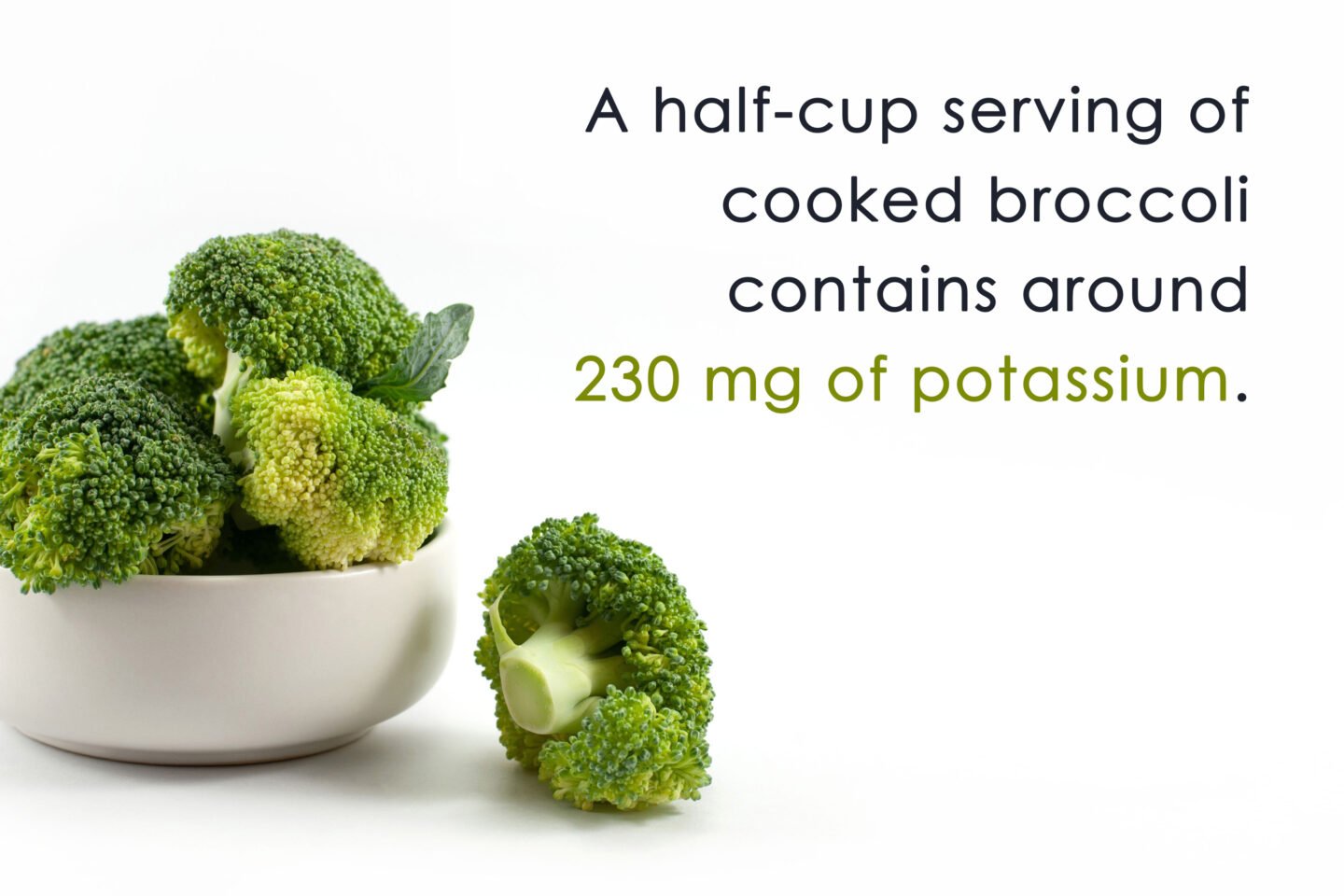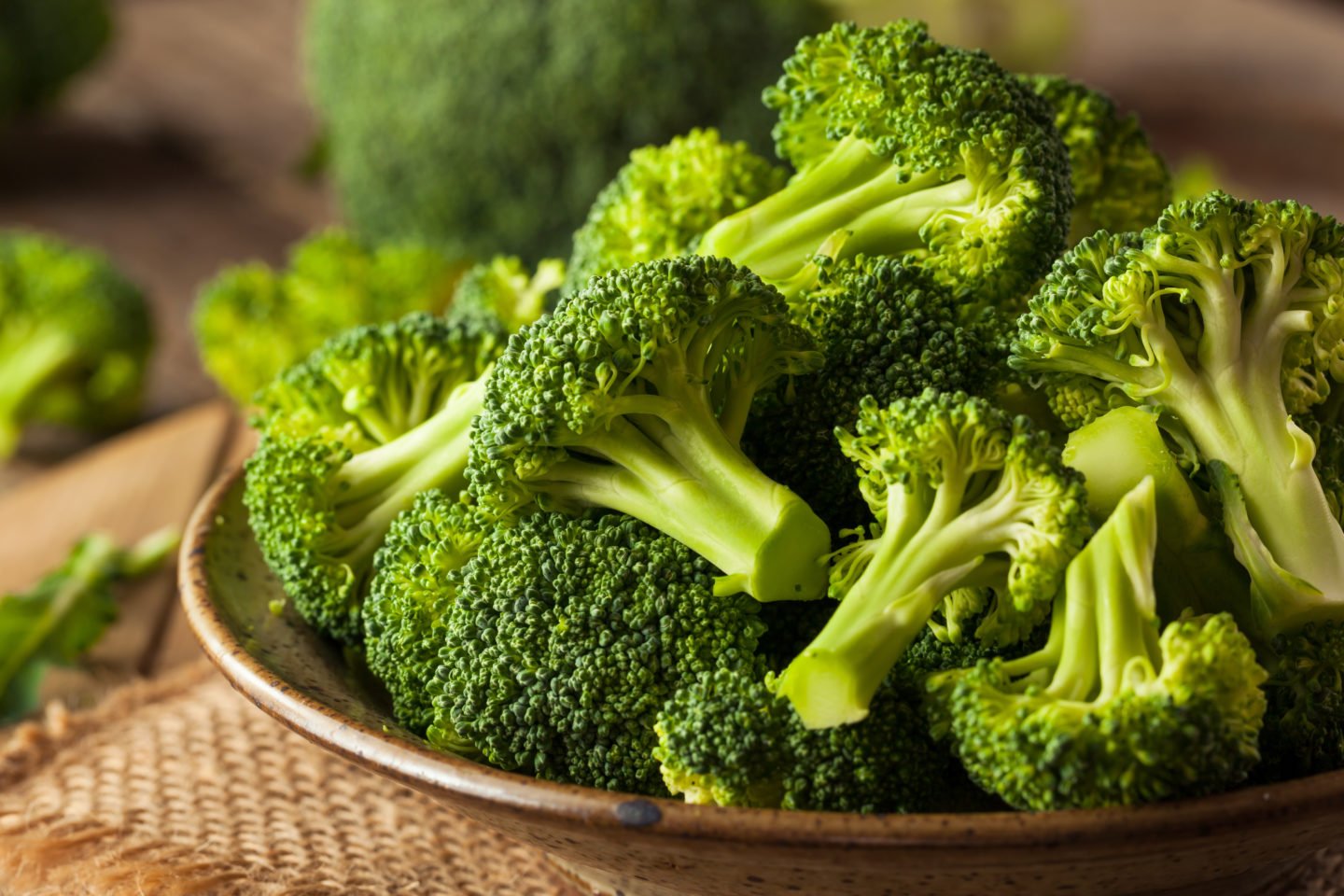Potassium is found naturally in many foods and is essential for maintaining the fluid balance in cells and muscle contractions. However, some people, such as those suffering from kidney disease, are sensitive to potassium and must ensure they stay within the daily intake recommended by their doctor.

Broccoli is nutritious, low in calories, and adds color to any dish. But how well does it fit into a low-potassium diet?
Table of Contents
Is Broccoli High or Low in Potassium?
Broccoli is relatively high in potassium, containing slightly more than the 200 mg per serving threshold of low-potassium foods. Eating broccoli in moderation may be fine for some on a low-potassium diet, but ensure you keep within the limit set by your doctor.
How Much Potassium Does Broccoli Contain?
A ½ cup serving of cooked broccoli contains around 230mg of potassium, so it should be strictly limited or avoided by those on a low-potassium diet.
However, broccoli's potassium content varies with preparation methods and added ingredients. For example, half a cup of cream of broccoli contains around 250mg, and most consume more than this per sitting.

Making cream of broccoli at home enables you to choose ingredients carefully and reduce the potassium content.
Don't know which foods are high in potassium? Read our article, 15 Best Food Sources of Potassium. We also have a guide to this important mineral: Potassium 101: All You Need To Know About Potassium.
Is Broccoli Healthy?
Broccoli is incredibly nutritious but low in calories. A ½ cup serving of cooked broccoli contains only about 27 calories but is an excellent protein source. Protein is essential for muscle tissue synthesis and keeps you feeling full longer after eating.
Broccoli is also high in fiber, which aids digestion and prevents stomach acid from refluxing up your esophagus. Fiber also helps lower blood sugar levels, decreasing the risk of type 2 diabetes. Like protein, fiber keeps you feeling full longer after eating, aiding weight control.
A serving of cooked broccoli contains over 100% of the recommended daily vitamin K intake. Vitamin K aids blood-clotting factor formation, helping your wounds heal faster. It also helps keep your bones healthy and strong, preventing health conditions such as osteoporosis and scurvy.

Broccoli is rich in vitamin C, which boosts your immune system and prevents viruses and bacteria from entering your body. An antioxidant, vitamin C helps your body function properly and remove free radicals. Free radicals cause cellular oxidative damage, which may lead to cancer.
Broccoli also contains bioactive compounds that help prevent inflammation, which can lead to serious health problems. Reducing inflammation can help prevent kidney stones, acid reflux, indigestion, and cardiovascular disease.
Is Raw Broccoli Lower in Potassium Than Cooked?
A ½ cup serving of raw broccoli contains around 139mg of potassium, considered low-potassium.
Raw broccoli is less likely to cause you to gain weight, as raw vegetables require more energy for digestion. It can be added to salads or other dishes, adding a different taste and delicious crunch.
Can You Get Too Much Potassium from Broccoli?
It would be almost impossible to get too much potassium purely by eating broccoli.
If you follow a low-potassium diet, it's best to limit your broccoli consumption. Too much potassium could lead to you developing kidney stones.
However, everyone needs some potassium in their diet, and broccoli is a highly nutritious addition to a balanced diet.
Don't know which foods are high in potassium? Read our article, 15 Best Food Sources of Potassium. We also have a guide to this important mineral: Potassium 101: All You Need To Know About Potassium.
